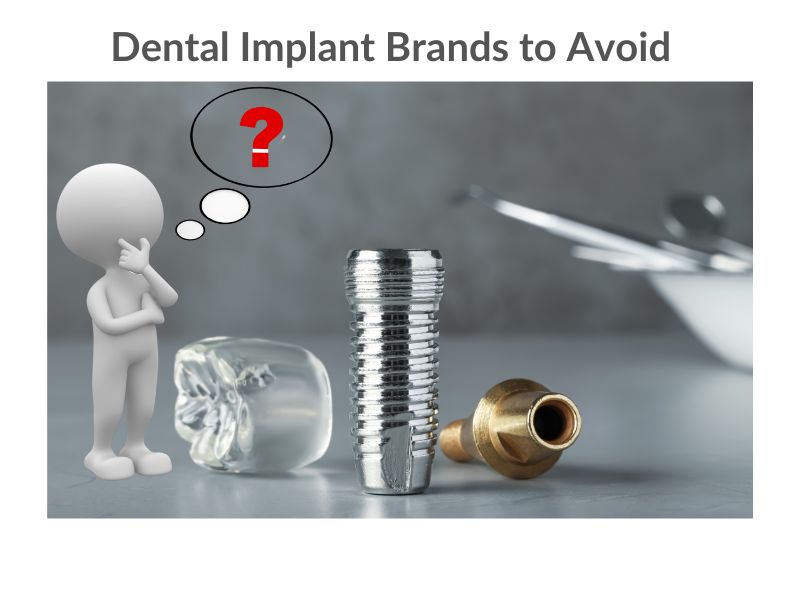
How do you determine which brand of dental implant to utilise when your dentist recommends one for your tooth issue? Do you believe that the brand is insignificant, and that the crucial factors are affordability, aesthetic appeal, and functionality?
If you believe that brand is unimportant, we propose that you reconsider after reading the facts provided below.
A dental implant is a long-term investment for your oral and dental health. The quality of a dental implant directly influences your expectations. Dental implants should look similar to natural teeth, be aesthetically compatible, fulfill tooth functions, and be durable for a long time. Otherwise, you may encounter many problems, such as infection, incompatibility with your jawbone, loosening, fracture, and cracking.
Therefore, it would be appropriate to evaluate dental implants based on their quality. Brands whose reliability and quality have been tested worldwide meet our expectations from a dental implant. Of course, there are also brands on the market that are of poor quality and should be avoided. First of all, let's give you information that will help you make a decision, starting with how the quality of a dental implant should be.
What are the factors that determine the quality of a dental implant?
Material quality for biocompatibility:
The term "biocompatibility" refers to the dental implant's material's compatibility with the tissue while also fulfilling its intended dental function. The quality of the material should incorporate the following properties:
- The body should not reject the dental implant, and the tooth should fulfill its function.
- They must be highly tolerable and unlikely to trigger allergic reactions
- They must be highly resistant to corrosion and breakage
- They must not emit any metal or alloy
- They must have a high tensile strength
The quality of the materials used increases the reliability and effectiveness of dental implants by providing long-lasting and aesthetically successful results.
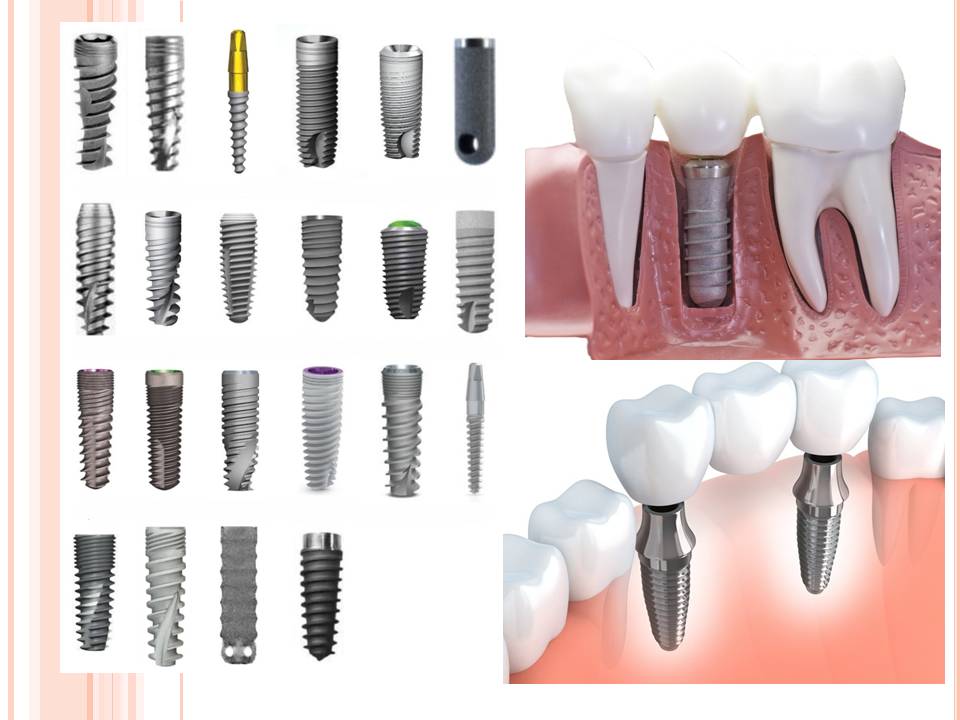
Biocompatible dental implant materials include:
Titanium:
Titanium is the predominant material utilised for dental implants. It is recognised for its superior tensile strength, fracture resistance, and exceptional biocompatibility. It is lightweight and corrosion-resistant.
Titanium alloys:
Titanium is produced by alloying with aluminium and vanadium. It has high tensile strength.It exhibits biocompatibility and integrates effectively with osseous tissue. It is favoured for use in posterior teeth.
Titanium-Zirconium Alloy (Roxolid):
It is an alloy of titanium and zirconium. It has higher strength than titanium, very high biocompatibility and is compatible with bone tissue.
Zirconium
Zirconium is a glassy ceramic material. Zirconium dental implants are white, which makes them more preferable for front tooth replacements. It has high iocompatibility, which makes the implant compatible with the surrounding tissues and gums.
Zirconium Ceramic:
Ceramic veneers used in the aesthetic part of dental implants support the implant's biocompatibility. Since it does not contain metal, there is no risk of allergy.
Tantalum
Tantalum is a metal with high biocompatibility and durability. It adapts well to bone. It is a material with a low risk of metal allergy.
Hydroxyapatite:
Hydroxyapatite is a compound containing calcium phosphate. It coats the implant's surface, facilitating its quick and firm integration with the bone.
Acrylic:
Acrylic implants, usually made from a resin, polymethyl methacrylate (PMMA), do not last as long as zirconium. However, they are biocompatible.
Mechanical properties:
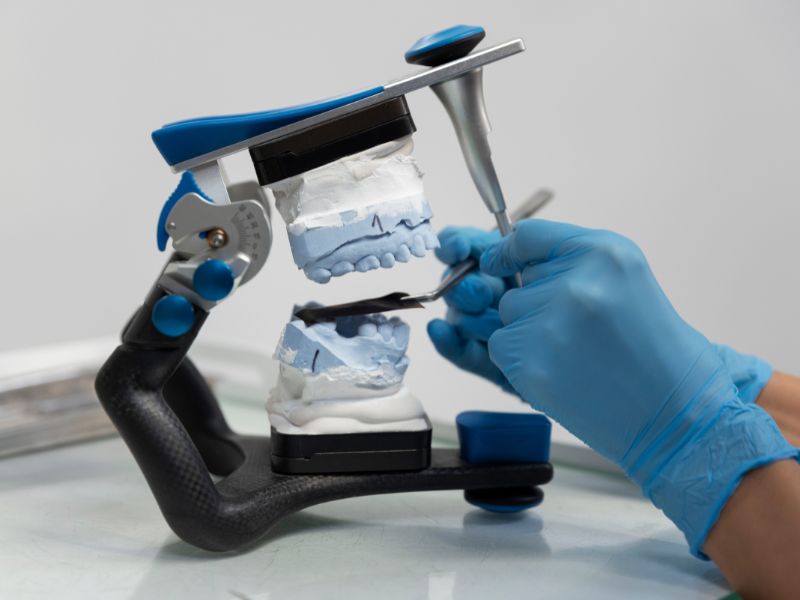
Easy processability:
The materials used in the production of implants should be simple to process and allow the dentist to place the implant in accordance with the jaw structure and make modifications when necessary.
High strength and resistance to fatigue
The masticatory force will subject dental implants to high strength and fatigue resistance. High strength allows the implant to last for a long time without fracture, bending, or deformation. If the implant has low fatigue strength, cracks may form over time, and the risk of an implant fracture may increase.
High Surface Hardness
The hardness of the implant surface plays a crucial role in ensuring its resistance to wear and tear. The hard surface shields the implant from abrading or damaging it, thereby preventing deformities.
R&D Investments:
Make sure that the implant brand you choose has done research and development (R&D) on the implants they produce. Today's technology has led to very exciting developments in dental implants. Developments in dental implants accelerate the osseointegration of the implant with the jawbone, making it more aesthetic and functional. Some brands also produce patient-specific implants using nanotechnology.
Established history of the brand:
Some brands have been in the implant market for a long time and produce high-quality implants with years of experience.
Brand recognition and success rate:
Select implant brands that are well-known and have a high success rate in treatment. You will find some of these brands in this article.
Global service network and spare material supply:
Your implant supplier should have a global service network and be able to provide you with spare materials when you need them, even years later.
Health and safety certification and guarantee:
The implant brand must have an international health and safety certificate and guarantee. The implant brands we will recommend to you are FDA (Food and Drug Administration)-approved.
Which are the best implant brands?
After giving you the information you need to choose an implant, we will now give you detailed information about the best implant brands on the market, which have proven to be reliable, have a high success rate in treatment, have high patient satisfaction, and are approved by the FDA, which we also prefer.
6 Best implant brands we prefer and recommend are as follows:
1. Straumann Implant
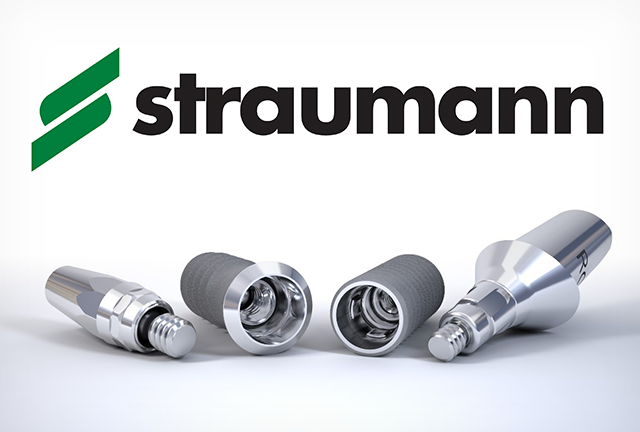
Straumann Implant, a Swiss brand, provides quality, precision, and innovation that ensures reliability in dentistry. It is distinguished by its international network, cutting-edge technology, and patient contentment. Since the inaugural dental implant in 1974, Straumann has persistently advanced dental implant technology, providing over 10 million implants and associated materials to patients.
What makes the Straumann brand different from other implant brands is the quality of materials, digital design, and success in laser technology. They invest in dental software. They work in collaboration with research centers, universities, and some major clinics.
2. Nobel Biocare Implant
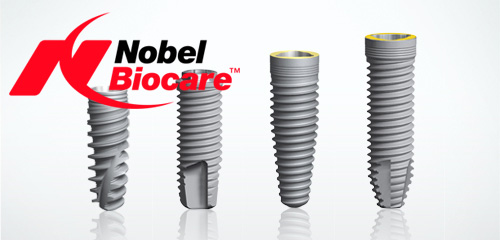
Founded in 1981, the company is headquartered in Switzerland and manufactures its products in Japan, Sweden, and the USA. Nobel Biocare supplies its products to more than 80 countries. It also provides education and training for dentists.
The company's product assortment is extensive. It manufactures dental implants and associated materials (abutments, crowns, bridges, etc.). The materials are recognised for their compatibility with gums and their endurance. Patients have gotten almost 10 million implants and associated materials.
Nobel BioCare's policies are based on the following principles:
- Focus on Scientific Excellence
- Being innovative in implant systems
- Excellent osseointegration properties and improved long-term stability
- Advancement in Digital Dentistry (comprehensive solutions for implant planning, guided surgery, and prosthetic rehabilitation)
- Offer comprehensive training and support programs.
3. OSSTEM Implant:
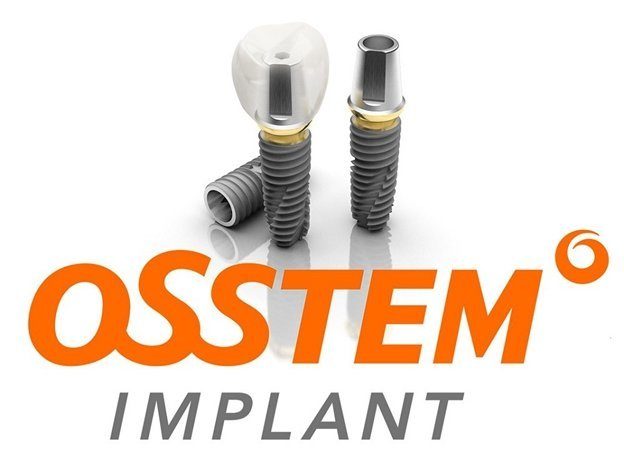
Founded in 1997 in South Korea, Osstem Implant markets its products in more than 70 countries. In addition to basic dental equipment, it also offers IT services needed by dental clinics. Osstem has an important place in the sector in terms of price-performance ratio. Durability in implants is its primary goal.
Employing a 'Digital Dentistry' methodology, it integrates implant design, surface treatment, bio-osseointegration technology, and digital convergence technology to proactively identify potential dangers in implant surgery and facilitate thorough and systematic planning. It additionally provides Guided Bone Regeneration (GBR) methods to rectify deficiencies in bone mass. Osstem possesses FDA certifications in addition to ISO and CE certifications.
4. Hiossen Implant:
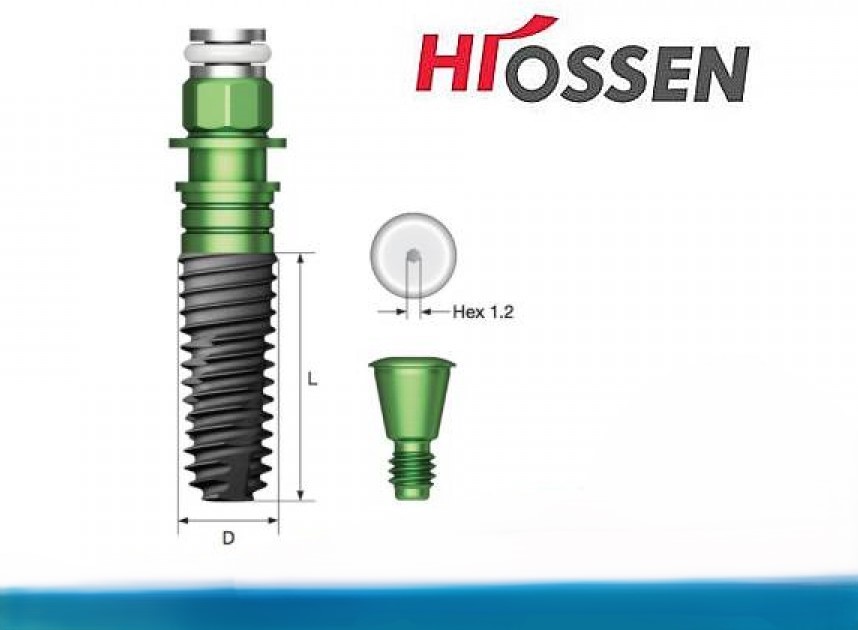
Founded in 2006, Hiossen is an American-based company. The company's policies are as follows:
Focus on Advanced Technology:
Hiossen uses state-of-the-art technology to create implants with excellent osseointegration properties and long-term stability. Hiossen also designs implant surfaces to accelerate bone healing and improve implant stability.
Offering a wide range of implant systems:
Hiossen offers a variety of implant systems to meet various clinical situations and patient needs. These include implants designed for immediate placement, narrow ridges, and aesthetic areas.
Supporting with Education and Training:
Hiossen offers dentists hands-on training, live surgical observation, and ongoing support through comprehensive education and training programs.
Global reach and affordability:
Hiossen exports implant systems to more than 70 countries around the world, providing reliable and affordable solutions.
5. Astra Tech Implant
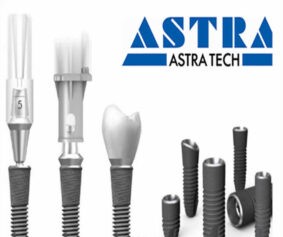
Founded in 1985 in Sweden, the company was acquired by US-based Dent Sirona in 2009. Dentsply Astra implants are known as biocompatible implants that interact easily with the body. They offer a versatile implant system suitable for a variety of clinical needs. It has a strong reputation for quality, long-term success, precision design, and reliability.
Here are the features of implants:
- The superior biocompatibility of these implants ensures dental patients receive safe and high-quality results.
- The advanced titanium alloy surface creates a strong bond with the surrounding bone tissue, minimizing the risk of implant failure.
- Unique surface roughness reduces the risk of infection.
- Low-profile design facilitates easy insertion.
- Offers a range of tooth sizes to meet the needs of different patients.
Innovative platform replacement design provides a more natural appearance.
6. Bego Implant:
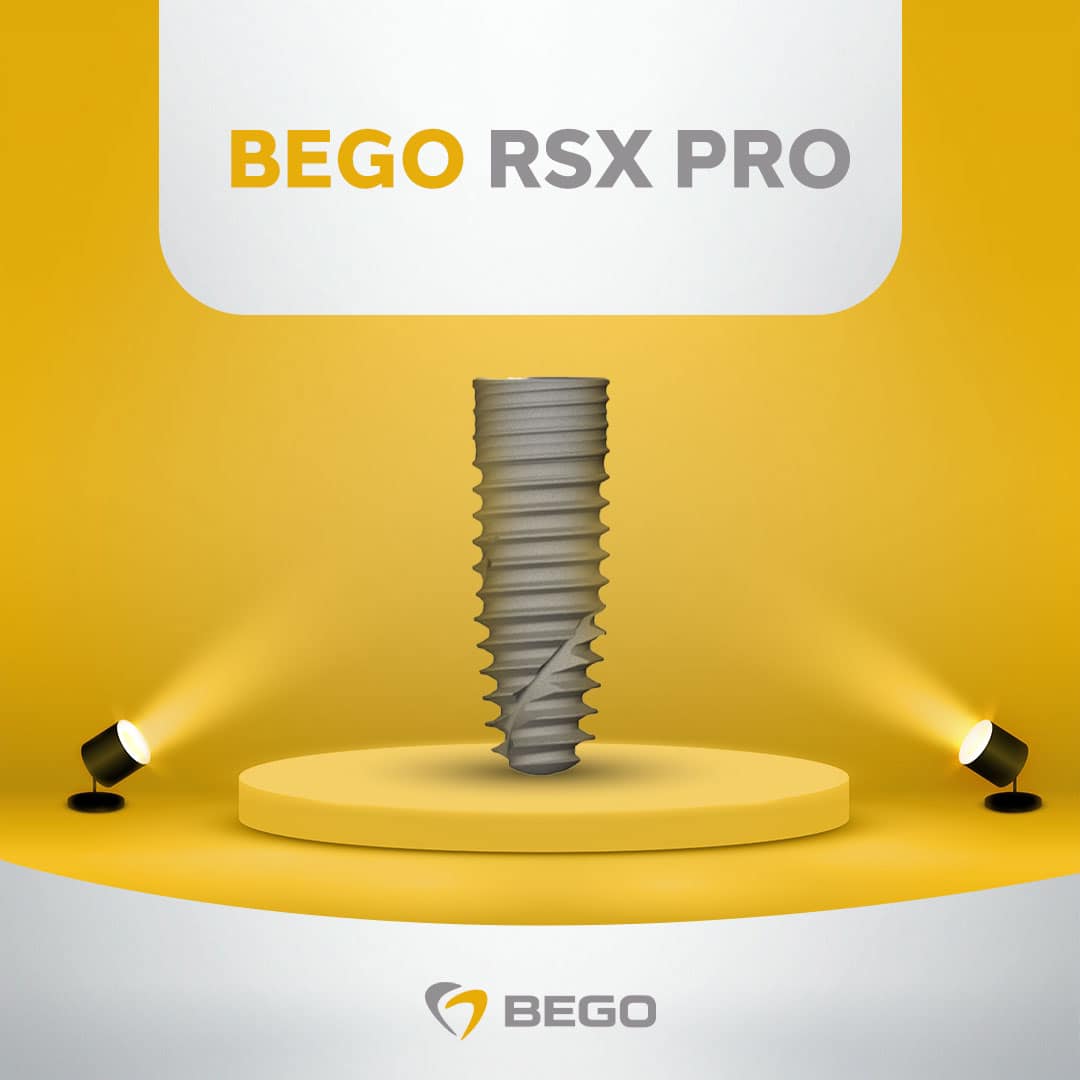
Since 1890, the German firm BEGO has been engaged in the dentistry industry, meticulously tracking the latest trends in dental implant manufacturing. Since 1994, BEGO has consistently invested in innovation at its new site in the Technology Park of the University of Bremen, with the objective of establishing itself as a leader in the dental implant sector.
The features of BEGO implants are:
- Low stresses on the implant (self-guiding bionic tooth designed to withstand stresses)
- Integrated platform replacement (supports preservation of the vertex bone)
- Fast insertion (only a few turns required)
- Easy to use (self-centering docking)
- 100% German development and production for the strictest quality requirements
Which implant brands to avoid?
There are more than 150 implant brands available in the market. It is essential to recognise which implant brands to avoid. Which particular characteristics of certain implant suppliers should we avoid? Let us discuss the attributes of implant brands that should be avoided.
There are more than 150 implant brands available in the market. It is essential to recognise which implant brands to avoid. Which particular characteristics of certain implant suppliers should we avoid? Let us discuss the attributes of implant brands that should be avoided.
Implant brands that do not comply with international standards:
Dental implant systems are usually made from materials that meet the international consensus standards of the International Organisation for Standardisation (ISO) or ASTM International. Implants without certificates such as CE marking and FDA approval may not inspire confidence.
Unrecognized brands without an established history:
It is very important that the implant brand has a global network and is recognised and trusted in the market.
Low-quality implant brands:
Low-quality implant brands can cause many problems, such as infection, implant rejection, fracture, aesthetic problems, and durability in the long term. Therefore, it is crucial for individuals considering implants to seek guidance from a trustworthy dentist regarding high-quality, internationally recognized brands, and to confirm their preference for these brands.
Very cheap implant brands:
Some brands at a fraction of the market price do not meet criteria such as material quality, aesthetic fit, functionality, comfort, and long-term success.
Brands without sufficient clinical research:
When you look at a dental implant brand, you should also find out if the brand has sufficient clinical experience.
Brands Missing Warranty or Certificates:
Quality implant brands usually have international certificates. Implants without certificates such as quality certificates, CE marking and FDA approval are risky.
Implant brands that do not provide spare parts:
A dental implant is a long-term investment. Therefore, you should be able to locate the necessary implant material when you need to make changes to your implant, even years down the line. It is therefore essential to find out in advance whether the implant brand you choose meets this requirement.
F.A.Q :
Is there a single “best” dental implant brand?
There is no single “best” brand of dental implants because each brand has its own unique features and benefits. When choosing a dental implant brand, factors such as the patient's dental problems and the experience and expertise of the dentist are taken into consideration.
Is it possible to use a single dental implant brand for all types of dental problems?
One dental brand can be used for all problems in your teeth, or more than one brand can be selected according to the problem in your teeth.
Should I choose the brand of implant myself?
No, you should choose the implant brand together with a reliable dentist. Because dentists work with a limited number of brands due to their training and product knowledge. Also, nowadays companies are trying to develop innovative products that increase the functionality of their designs.
How do I find out which dental implant brands I should avoid?
Information about these brands is available from the American Dental Association (ADA), the U.S. Food and Drug Administration (FDA), and the European Federation of Periodontology (EFP). You can also access the websites of various organisations. These websites provide information on which brands and which features to avoid.
Which type of dental implants has the highest success rate?
Generally, endosteal implants have shown a higher success rate in comparison to subperiosteal implants.
What is the average duration necessary for a successful implant model?
A successful implant model necessitates extensive scientific research, which typically takes 8–10 years to complete.
Is there an age limit for dental implants?
Dental implants can be placed in every healthy patient. Young patients cannot be implanted until the jawbone has finished growing. For some patients, this can be as late as their early 20s.
